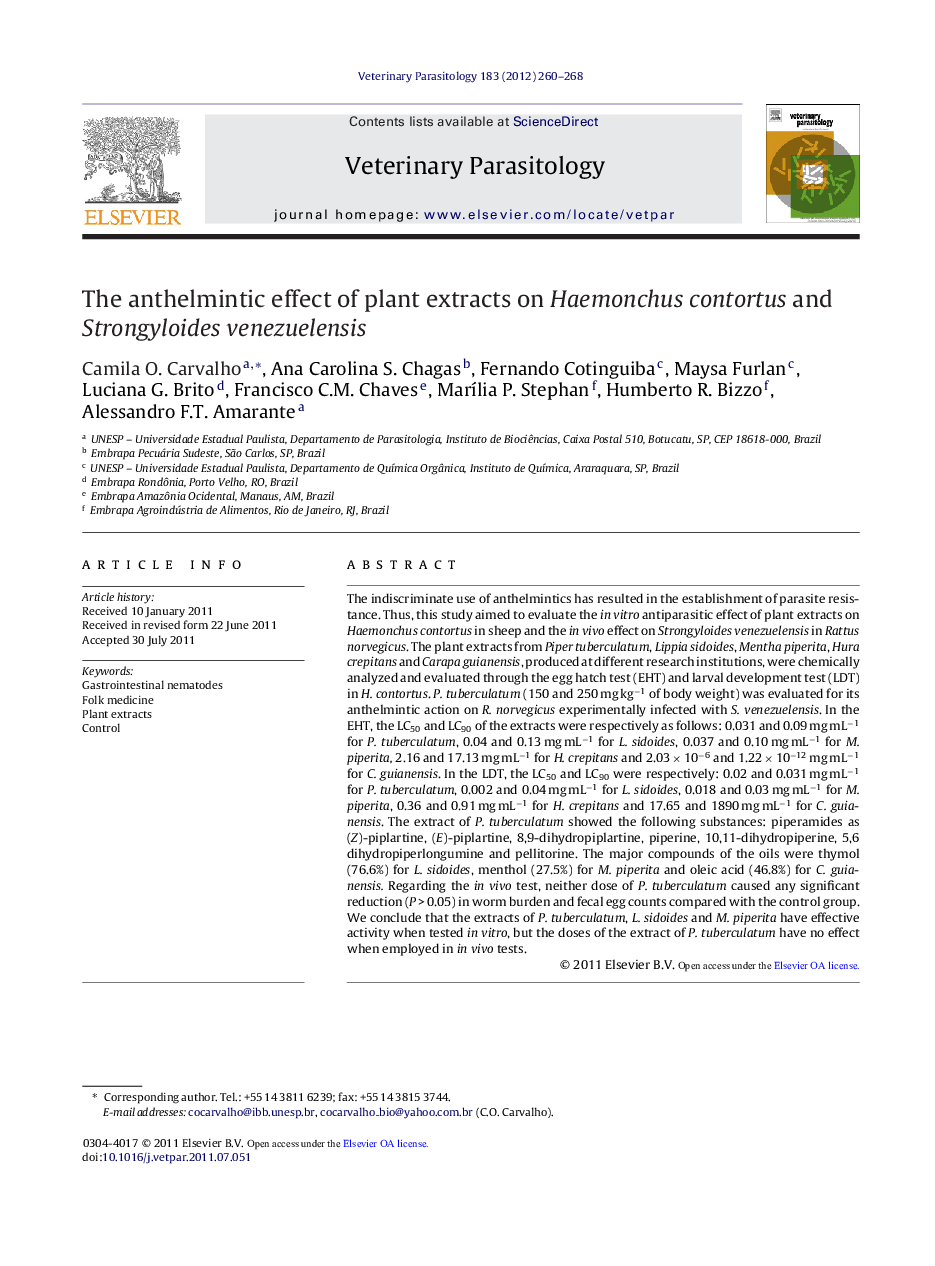| کد مقاله | کد نشریه | سال انتشار | مقاله انگلیسی | نسخه تمام متن |
|---|---|---|---|---|
| 5805548 | 1555718 | 2012 | 9 صفحه PDF | دانلود رایگان |

The indiscriminate use of anthelmintics has resulted in the establishment of parasite resistance. Thus, this study aimed to evaluate the in vitro antiparasitic effect of plant extracts on Haemonchus contortus in sheep and the in vivo effect on Strongyloides venezuelensis in Rattus norvegicus. The plant extracts from Piper tuberculatum, Lippia sidoides, Mentha piperita, Hura crepitans and Carapa guianensis, produced at different research institutions, were chemically analyzed and evaluated through the egg hatch test (EHT) and larval development test (LDT) in H. contortus. P. tuberculatum (150 and 250 mg kgâ1 of body weight) was evaluated for its anthelmintic action on R. norvegicus experimentally infected with S. venezuelensis. In the EHT, the LC50 and LC90 of the extracts were respectively as follows: 0.031 and 0.09 mg mLâ1 for P. tuberculatum, 0.04 and 0.13 mg mLâ1 for L. sidoides, 0.037 and 0.10 mg mLâ1 for M. piperita, 2.16 and 17.13 mg mLâ1 for H. crepitans and 2.03 Ã 10â6 and 1.22 Ã 10â12 mg mLâ1 for C. guianensis. In the LDT, the LC50 and LC90 were respectively: 0.02 and 0.031 mg mLâ1 for P. tuberculatum, 0.002 and 0.04 mg mLâ1 for L. sidoides, 0.018 and 0.03 mg mLâ1 for M. piperita, 0.36 and 0.91 mg mLâ1 for H. crepitans and 17.65 and 1890 mg mLâ1 for C. guianensis. The extract of P. tuberculatum showed the following substances: piperamides as (Z)-piplartine, (E)-piplartine, 8,9-dihydropiplartine, piperine, 10,11-dihydropiperine, 5,6 dihydropiperlongumine and pellitorine. The major compounds of the oils were thymol (76.6%) for L. sidoides, menthol (27.5%) for M. piperita and oleic acid (46.8%) for C. guianensis. Regarding the in vivo test, neither dose of P. tuberculatum caused any significant reduction (P > 0.05) in worm burden and fecal egg counts compared with the control group. We conclude that the extracts of P. tuberculatum, L. sidoides and M. piperita have effective activity when tested in vitro, but the doses of the extract of P. tuberculatum have no effect when employed in in vivo tests.
Journal: Veterinary Parasitology - Volume 183, Issues 3â4, 10 February 2012, Pages 260-268